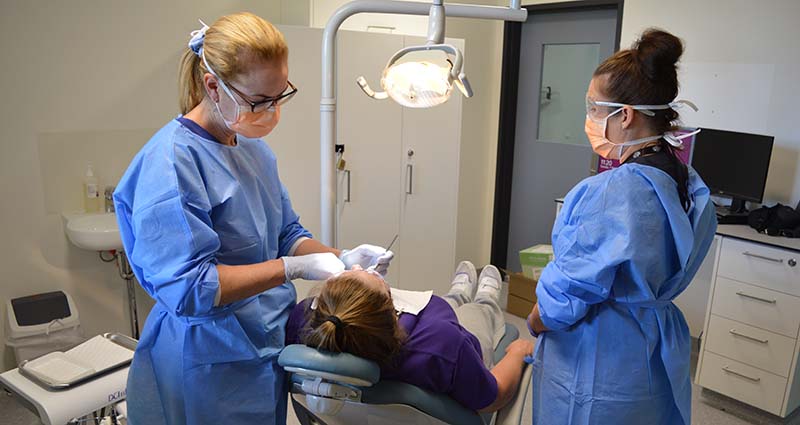
A new dental clinic opened at the Wandoo Rehabilitation Prison in Murdoch recently is expected to significantly improve dental care services for the 300-plus female prisoners at that facility and Melaleuca Women’s Prison in Canning Vale.
Previously, prisoners from both facilities requiring dental services had to be transported to the clinic at Bandyup Women’s Prison in West Swan for treatment.
Operated by staff from the North Metropolitan Health Service (NMHS) Dental Health Services (DHS), the Wandoo clinic will initially operate one day per week.
Corrective Services Commissioner, Michael Reynolds, said the custodial and DHS staff at Wandoo were working collaboratively to provide prisoners with a new holistic health-focussed approach to dental care.
“As well as treatment for dental pain and infection, the aim is to provide comprehensive education and maintenance care plans, so the women have a good understanding of best-practice dental hygiene by the time they are released back into the community.”
All dental services for prisoners in WA are provided by the NMHS DHS through an established Memorandum of Understanding between NMHS DHS and the Department of Justice.
As such, dental services in prisons are dependent on the availability of DHS resources, which must be balanced alongside the high demand for public dental services in the community.
The Department of Justice has reviewed the Office of the Inspector of Custodial Services (OICS) Report on Prisoner Access to Dental Care in WA, which was tabled in State Parliament today, supporting-in-principle three of the six recommendations.
Commissioner Reynolds acknowledged that, as a group, prisoners had poorer oral health than the wider community.
“This could be due to a range of factors, including that a significant proportion of prisoners come from low socio-economic backgrounds and therefore had limited access to low cost dental services, higher rates of using both legal and illicit substances which can negatively affect a person’s dental health, and linkages between dental disease and mental ill health.
“For some, prison is the only time they see a dentist.
“The Department of Justice cannot address this unfortunate reality alone.”
The Department is committed to improving current practices relating to the facilitation
of dental services and recently met with NMHS DHS to discuss options to secure additional resources for an increased level of dental care for prisoners.


